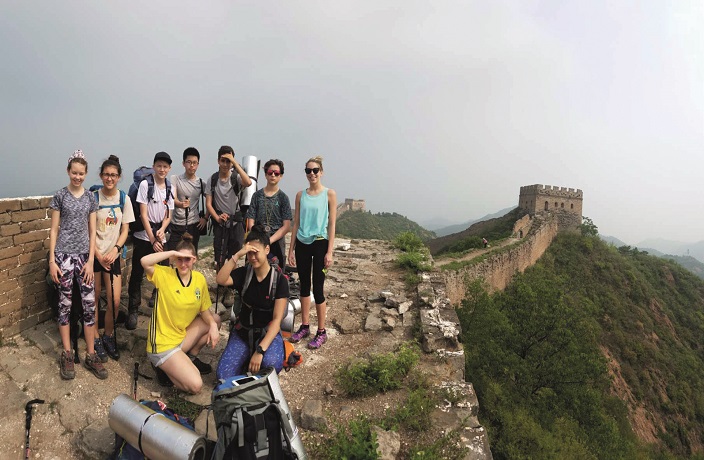We all know the importance of learning Mandarin as part of the curriculum, but what are some other ways Chinese culture can come to life at school?
We posed this question to Shanghai teachers to hear about their experiences connecting students with Chinese culture. They have come back with stories of trips outside the classroom, celebrating significant cultural events and activities that teach students about Chinese history. These efforts provide the children a deeper understanding and appreciation for the country in which they live.
So, as the school year continues and children come together intheir multicultural classrooms, let's hear from Jo Evans and Matthew Corke, who are from Wellington College International Shanghai.
 Expeditions are about pupils enjoying and learning from a series of hands-on activities and experiences outside of the classroom. While daily classroom-based studies are necessary and important, being able to see, smell, touch and taste different real-world environments invariably gives pupils a richer experience and lets them hone a wide range of skills in an entirely practical manner.
Expeditions are about pupils enjoying and learning from a series of hands-on activities and experiences outside of the classroom. While daily classroom-based studies are necessary and important, being able to see, smell, touch and taste different real-world environments invariably gives pupils a richer experience and lets them hone a wide range of skills in an entirely practical manner.
At Wellington College, we have had trips that create life-changing experiences from Moganshan to Mongolia, from the lakes of Dianshan to the rainforests of Sabah in Borneo. Each time, Wellingtonians come back stronger - more independent, resilient and aware of their capabilities.
These trips also give our pupils the chance to unplug digitally. We are all bombarded with digital images hundreds or even thousands of times a day. Being in an environment without WiFi, phone signal or electricity places children in a situation where they have more real, lasting and interpersonal experiences. They notice and enjoy their surroundings, talk to one another and focus on the here and now.

Image via Wellington College International Shanghai
 Last summer's expeditions provided excellent examples of how important it is to give pupils greater access to learning experiences outside of the classroom. The Tongzhou Island trip saw pupils reflecting on the importance of nature during a silent 'Planetwalk' in imitation of the great environmentalist John Francis. The Yunnan province trip exposed Wellingtonians to a mix of demanding physical challenges like Via Ferrata (Iron Path) rope climbing, as well as a cultural exploration of China's minority communities. Then we had the Cuandiaxia trip, which was the college's inaugural year of involvement with the Duke of Edinburgh Award program. Participants completed their Bronze Award through planning and completing a rugged 16 kilometers per day hike over and around sections of the Great Wall.
Last summer's expeditions provided excellent examples of how important it is to give pupils greater access to learning experiences outside of the classroom. The Tongzhou Island trip saw pupils reflecting on the importance of nature during a silent 'Planetwalk' in imitation of the great environmentalist John Francis. The Yunnan province trip exposed Wellingtonians to a mix of demanding physical challenges like Via Ferrata (Iron Path) rope climbing, as well as a cultural exploration of China's minority communities. Then we had the Cuandiaxia trip, which was the college's inaugural year of involvement with the Duke of Edinburgh Award program. Participants completed their Bronze Award through planning and completing a rugged 16 kilometers per day hike over and around sections of the Great Wall.
Wherever the destination, whether a Shanghai museum visit or a trek in a distant jungle, the aim is to open pupils’ minds to the wider world before them. We believe that expeditions help to build self-confidence and equip pupils to better deal with all manner of challenges that school and later life may present them.

Image via Wellington College International Shanghai
[Cover image via Wellington College International Shanghai; Profile image via Jo Evans and Matthew Croke]
Jo Evans is the Director of Well-being and the expeditions program co-ordinator at Wellington College International Shanghai. Jo has taught internationally in Qatar and the Falkland Islands, working across the arts and pastoral leadership, as well as leading arts faculties in schools in London and the south east of England.
Matthew Corke is a geography teacher and the Head of Humanities at Wellington. In his spare time, he is an avid traveler and an explorer of places off the beaten track. He;s also a skilled kayaker, an amateur paraglider and a photographer.

















